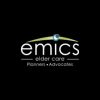5 Reasons How You Can Qualify For An Elderly Care Facility Through Medicaid?

Navigating the maze of healthcare options for seniors can be daunting, especially when trying to find an affordable solution. Medicaid often serves as a lifeline, offering elderly individuals the opportunity to receive necessary care without breaking the bank.
But how exactly can you qualify for an elderly care facility through Medicaid?
Let’s break it down.
Visit Emics Elder Care to get more information related to finding the right elderly care facility in Queens!
Understanding Medicaid
Before diving into the reasons, it’s crucial to understand what Medicaid is. Medicaid is a joint federal and state program designed to help with medical costs for people with limited income and resources. It offers benefits not typically covered by Medicare, including long-term care in nursing homes and at-home care.
-
Financial Need
One of the primary criteria for qualifying for Medicaid is demonstrating financial need. To do this, you must meet specific income and asset limits.
-
Income Limits: Each state has different income thresholds. Generally, you must have a low income to qualify. In some states, if your income exceeds the limit, you can still qualify through a “spend-down” process where medical expenses are subtracted from your income.
-
Asset Limits: Medicaid also looks at your assets. Typically, you can have up to $2,000 in countable assets ($3,000 for a couple). Certain assets like your home, car, and personal belongings may not count towards this limit.
-
Medical Necessity
Simply having low income isn’t enough. You also need to show a medical necessity for the care provided in an elderly care facility. This involves:
-
Functional Assessment: States often require an assessment of your ability to perform daily activities. These activities include bathing, dressing, eating, and mobility. If you need significant help with these activities, you’re more likely to qualify.
-
Physician’s Statement: A physician must often provide documentation stating that nursing home care is medically necessary for your well-being.
-
Spend Down
If your income is too high to qualify outright, you might still be able to become eligible through the spend-down process. This allows you to “spend down” your excess income on medical expenses until you meet the Medicaid income limit. This can include costs such as:
-
Unpaid Medical Bills: Use your income to pay off any outstanding medical bills.
-
Medical Equipment and Supplies: Purchase necessary medical equipment or supplies.
-
Home Modifications: Make changes to your home to accommodate your medical needs.
-
Estate Recovery Program
Medicaid has an Estate Recovery Program (MERP) that can recover the costs of care from the estate of a deceased Medicaid recipient. While this might sound alarming, there are several exemptions and protections in place:
-
Primary Residence Exemption: Your home might be exempt if a spouse, child under 21, or a disabled or blind child lives there.
-
Hardship Exemptions: In cases of significant hardship, states might waive recovery.
Understanding and planning for MERP can help you better qualify and protect your assets.
-
Lookback Period
Medicaid enforces a “lookback period,” which is typically five years. This means they will review your financial transactions from the past five years to ensure you haven’t transferred assets to meet the eligibility criteria fraudulently. If they find improper transfers, it can result in a penalty period during which you won’t be eligible for Medicaid.
-
Proper Planning: Proper estate planning with legal assistance can help you navigate the lookback period without penalties.
-
Irrevocable Trusts: Consider setting up irrevocable trusts well in advance to protect assets and qualify for Medicaid.
Ensuring that you or your loved one receives the care needed without financial strain is essential.
Also, don’t forget to contact Emics Elder Care, if you want to know more about finding the right elderly care facility in Queens!

